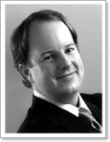When two giants of investing, Charlie Munger and Howard Marks, emphasize a similar theme, it pays to take note. It is interesting to me that they, and many other investors, eventually move well beyond the quantitative analysis of business to the “second level” of psychology, emotions, and other very human characteristics of a situation. “The biggest investing errors come NOT from factors that are informational or analytical. But from those that are psychological,” writes Howard Marks. As chairman and co-founder of Oaktree Capital Management, he manages a Los Angeles-based investment firm with $80 billion under management. His book, The Most Important Thing, Uncommon Sense for the Thoughtful Investor” comes from Columbia Business School publishing.
Where Come Opportunities?
“Inefficiencies — mis-pricings, mis-perceptions, mistakes that other people make — provide potential opportunities for superior performance,” writes Marks. He holds a Bachelor’s Degree in finance from the Wharton School and an MBA in accounting and marketing from the University of Chicago.
“Exploiting (these mistakes), is, in fact, the only road to consistent out-performance. To distinguish yourself from the others, you need to be on the right side of those mistakes” he writes.
Where Come Mistakes?
So, “Where do mistakes occur? asks Marks. “Investing is an action undertaken by human beings, most of whom are at the mercy of their psyches and emotions. Many people possess the intellect needed to analyze data, but far fewer are able to look more deeply into things and withstand the powerful influence of psychology.”
Again, “Many people will reach similar cognitive conclusions from their analysis, but what they do with those conclusions varies all over the lot because psychology influences them differently. The biggest investing errors come not from factors that are informational or analytical.”
Marks Quotes Munger on Investing Errors
Then Marks quotes the one who sits at the Berkshire Hathaway table with Warren Buffett, Charlie Munger who quotes Memosthenes: “Nothing is easier than self-deceit. For what each man wishes, that also he believes to be true.”
Charlie Munger, the Vice Chairman at Berkshire Hathaway, and a huge, still unrecognized force behind the success of Berkshire Hathaway, has often written and spoken about similar things. The importance of “psychology” in investing to Munger is explored in next week’s post.



 I am an investor at Greybull Stewardship, an
I am an investor at Greybull Stewardship, an 
 Sign Up
Sign Up RSS Feed
RSS Feed